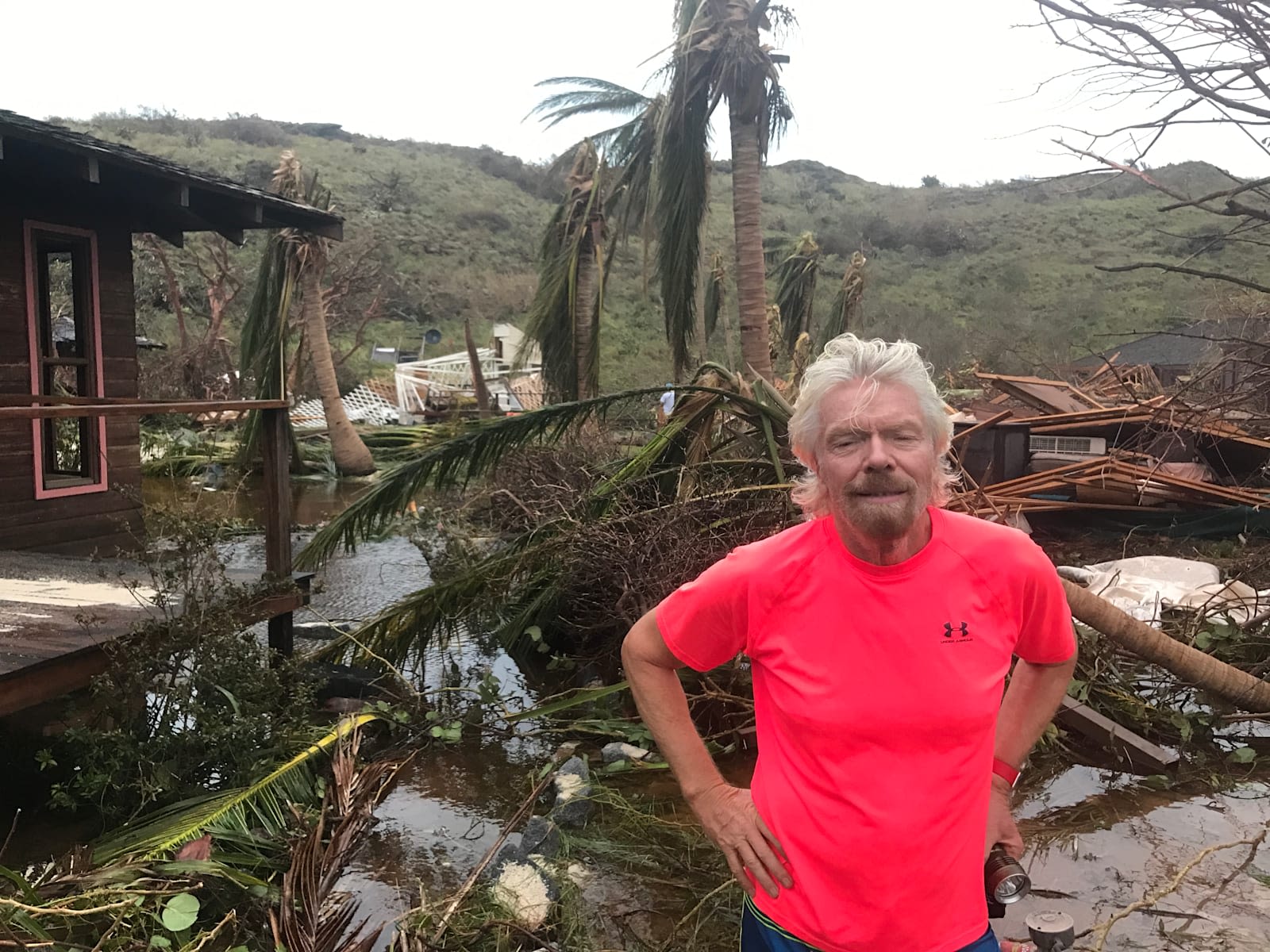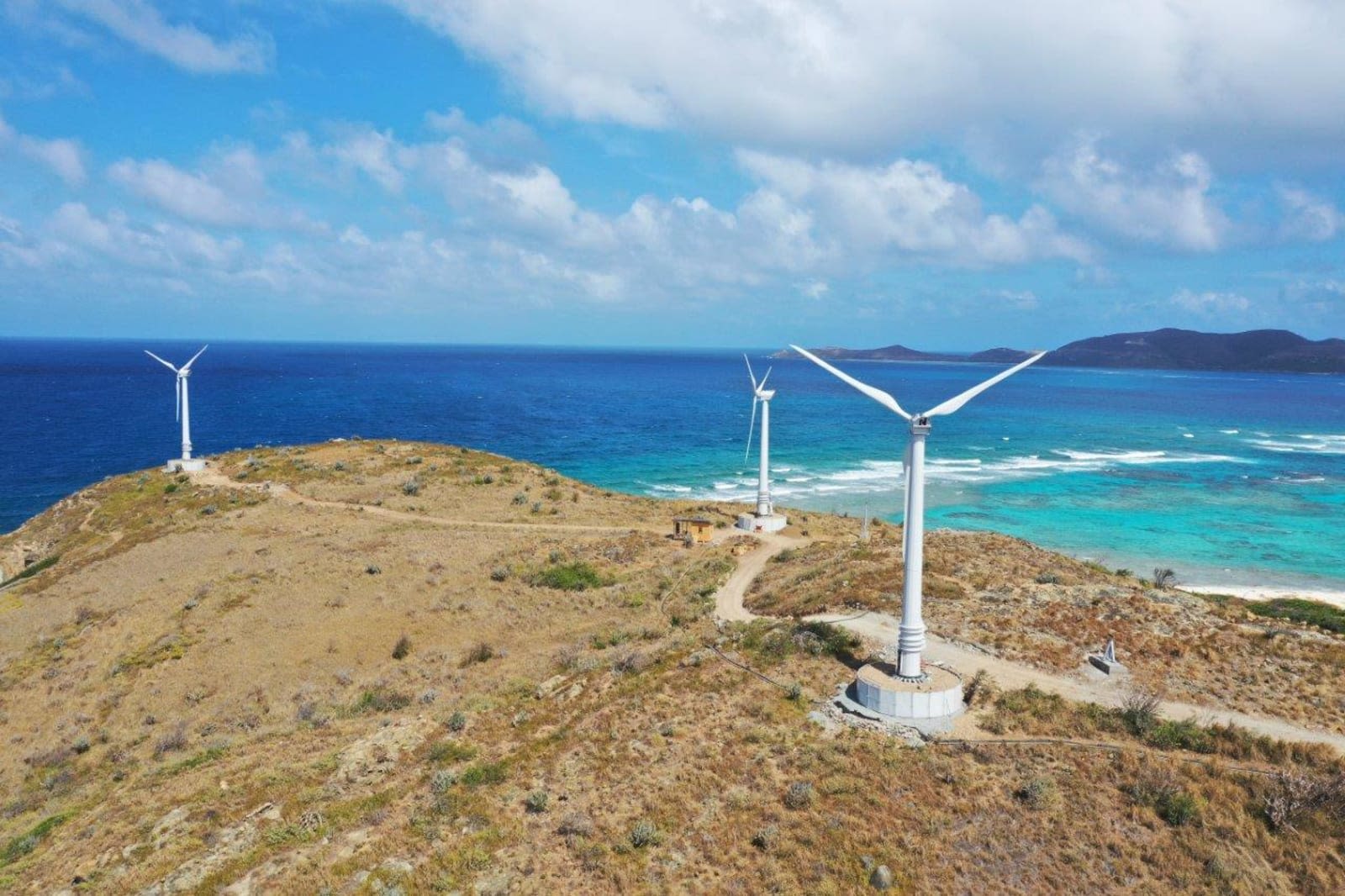Building a resilient Caribbean
The Caribbean is on the front lines of the climate crisis with more severe, frequent storms. My home is in the British Virgin Islands, and in the past few years we have witnessed hurricanes more ferocious than anything we have seen before. Hurricanes Irma, Maria and Dorian, all extremely dangerous category 5 storms, caused huge devastation across the Caribbean.
But the spirit of the Caribbean is indomitable and it’s heartening to see the region looking for solutions and leading its own energy transition. You can watch the brilliant team at the Rocky Mountain Institute (RMI) on CBS 60 minutes talking about how we can built a more resilient Caribbean.
Back in 2009, Virgin started the Carbon War Room with a mission to stimulate business-led market interventions that advance a low-carbon economy. In 2014, the Carbon War Room merged with the RMI, and now operates as a business team. Our foundation, Virgin Unite, remains one of the RMI’s main partners, funders and supporters. When we started out, the clean energy revolution was still thought of by many as an impossible dream. It’s good to see the RMI’s work in the Caribbean help turn this dream into reality.
As the 60 Minutes segment shows, the RMI’s Islands Energy Program supports island partners to transition from expensive and dirty energy sources to clean, affordable, and more resilient energy systems.
The Caribbean is blessed with an abundance of renewable energy sources and increasingly, solar, wind and batteries are being deployed across the region, replacing power plants that have been running unsustainably on imported fossil fuels. While massively reducing emissions and other environmental impacts, the shift to renewables also brings a strong financial incentive for these island nations. Importing fossil fuels is expensive, and the costs have often been unpredictable as they fluctuate with the cost of oil, transportation and weather. At the same time, the cost of solar cells and battery storage has been falling steadily. For policy makers and investors alike, this really should be a no-brainer.
As it leads on energy transition, the Caribbean can also lead on resilience. We are also supporting the Caribbean Climate-Smart Accelerator, a project to build a greener, stronger and more resilient Caribbean that’s powered by clean, sustainable energy and accelerated by sound public and private investment. It’s so important that we turn the enormous challenge of climate change into a real opportunity for the whole of the region. We can’t carry on with business as usual in the face of the destruction and suffering that extreme weather events are causing to islanders.
On Necker Island, we have shown how to create a system to keep the power on during severe weather events. It shows solar, wind and batteries working together. It’s a local solution to a global problem.
The Caribbean is not the only place that needs resilient solutions to deal with interruptions to power; globally communities are facing dangers. As the planet continues to warm, the embedded energy in the ocean rises, and storms will get worse. In each case, distributed energy solutions including solar, wind and battery-powered microgrids offer unique advantages, both reducing emissions and keeping the lights on.
This is the future, and I hope the Caribbean will be leading the way.
Head over to the Rocky Mountain Institute to find out more about their great work.



